Indigenous Governance Database
Canada
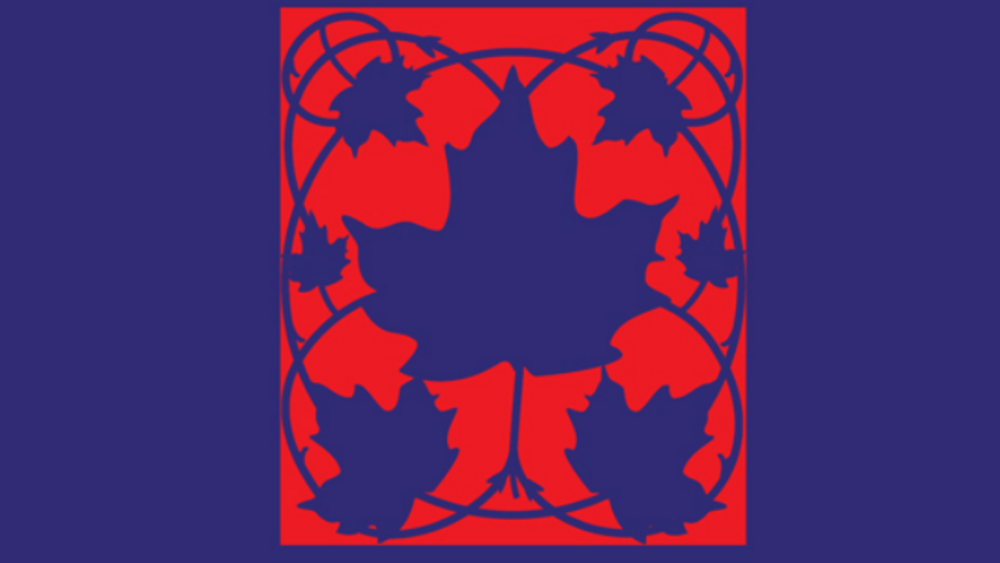
What are the Limits of Social Inclusion? Indigenous Peoples and Indigenous Governance in Canada and the United States
Contemporary debates about poverty and its mitigation often invoke the idea of social inclusion: the effort to increase the capacities and opportunities of disadvantaged populations to participate more fully in the economy, polity, and institutions of developed societies. While practical outcomes…
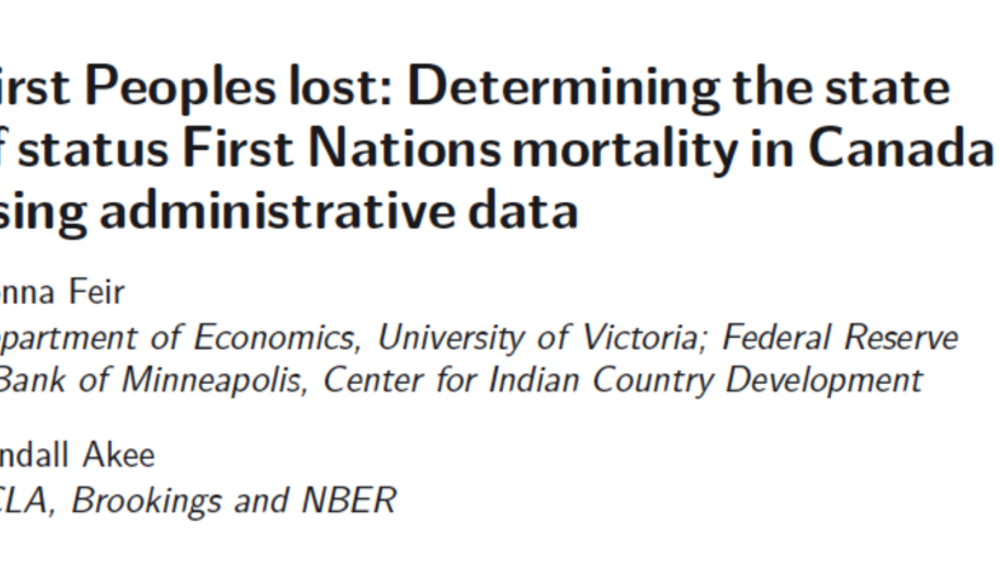
First Peoples Lost: Determining the State of Status First Nations Mortality in Canada Using Administrative Data
We present the most comprehensive set of estimates to date for status First Nations mortality in Canada. We use administrative data from Indigenous and Northern Affairs Canada to establish a set of stylized facts regarding status First Nations mortality rates. Between 2010 to 2013, the mortality…
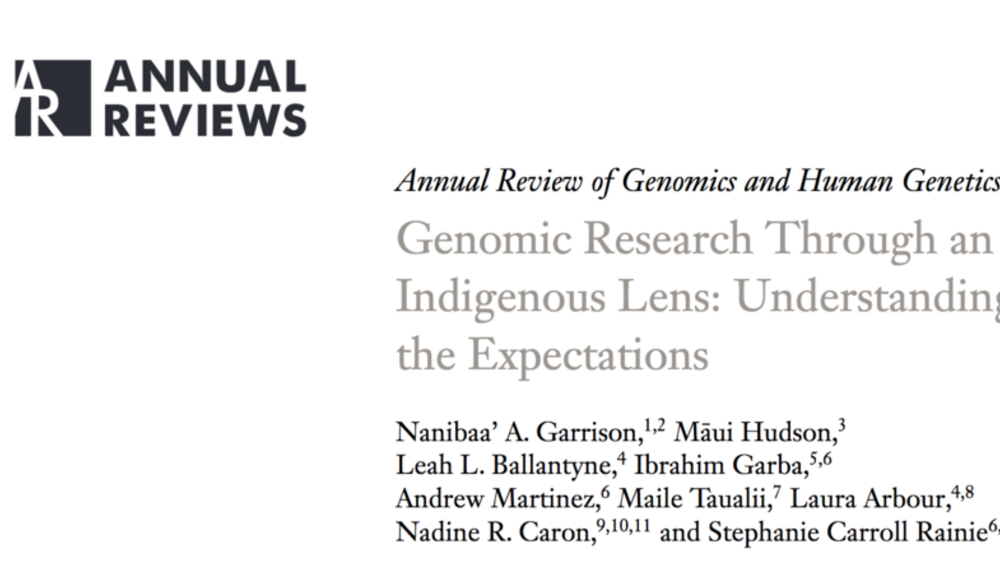
Genomic Research Through an Indigenous Lens: Understanding the Expectations
Indigenous scholars are leading initiatives to improve access to genetic and genomic research and health care based on their unique cultural contexts and within sovereign-based governance models created and accepted by their peoples. In the past, Indigenous peoples’ engagement with genomic research…
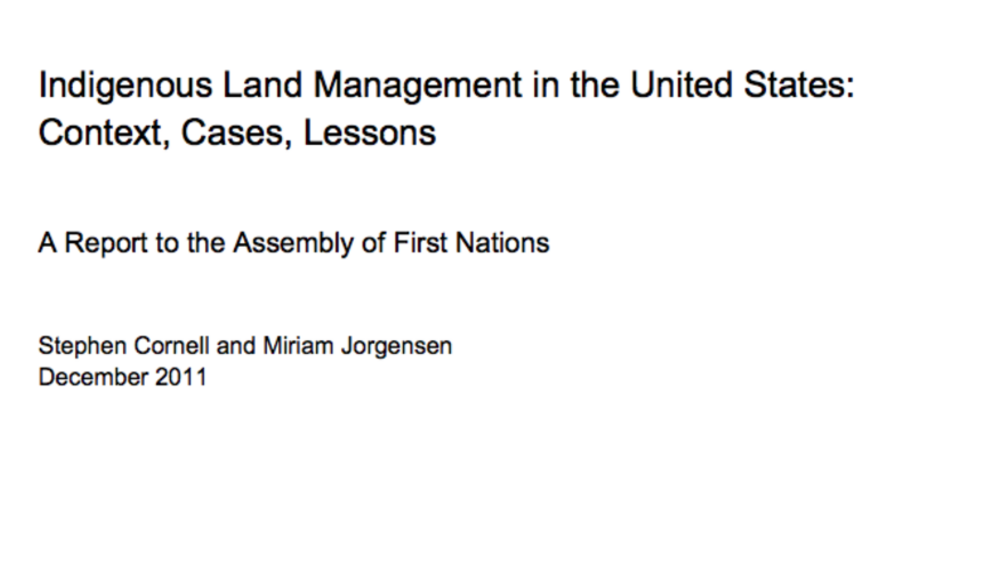
Indigenous Land Management in the United States: Context, Cases, Lessons
The Assembly of First Nations (AFN) is seeking ways to support First Nations’ economic development. Among its concerns are the status and management of First Nations’ lands. The Indian Act, bureaucratic processes, the capacities of First Nations themselves, and other factors currently limit the…
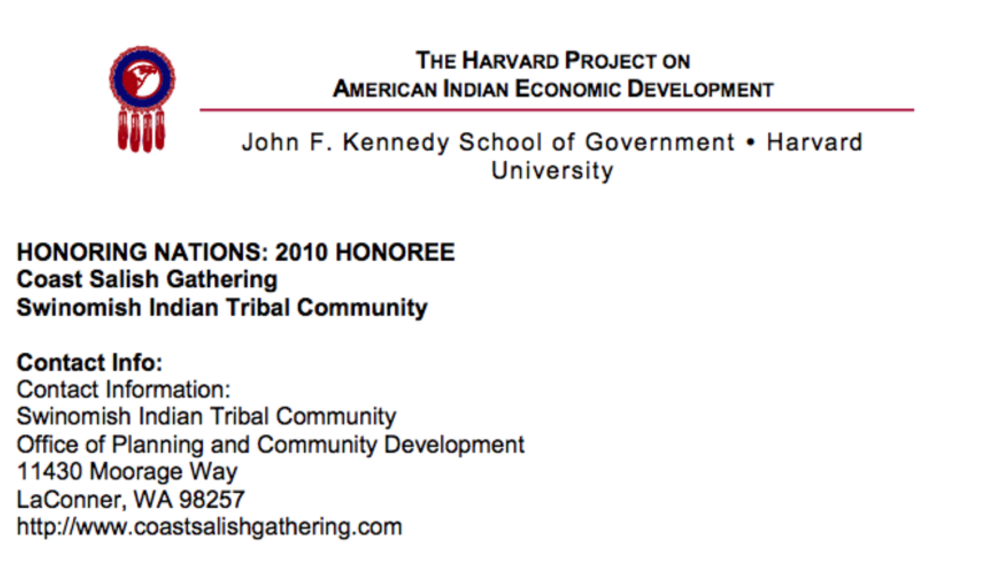
Coast Salish Gathering
Ecosystems in many parts of North America are under severe stress. Pollution, the overuse of natural resources, and habitat destruction threaten local flora and fauna. Conservation attempts often fall short because they target one species of site within an ecosystem. The Coast Salish Gathering…
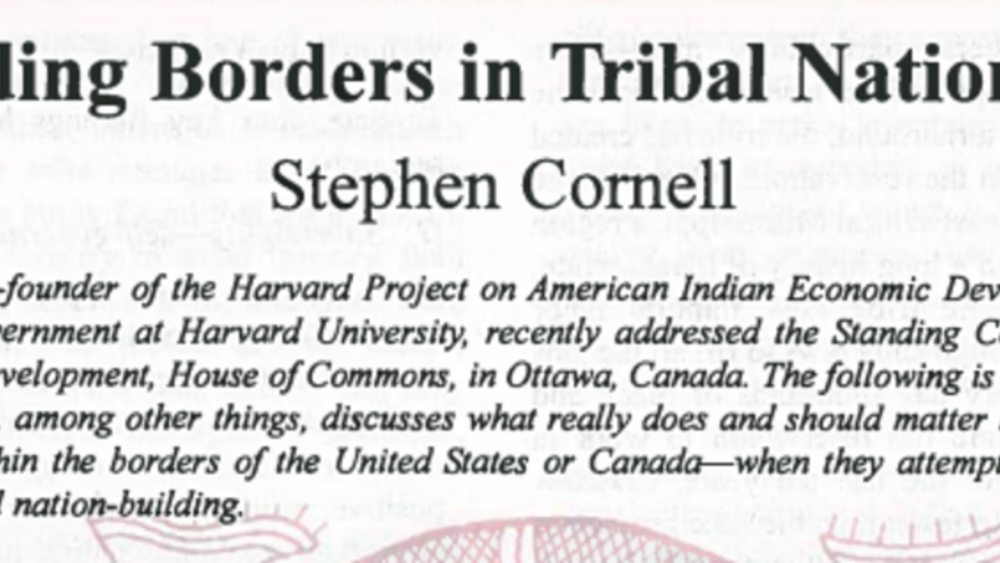
Transcending Borders in Tribal Nation-Building
Dr. Stephen Cornell addressed the Standing Committee on Aboriginal Affairs and Northern Development, House of Commons, in Ottawa, Canada. The following is the excerpted transcript from his address, which, among other things, discusses what really does and should matter to Indigenous peoples--…
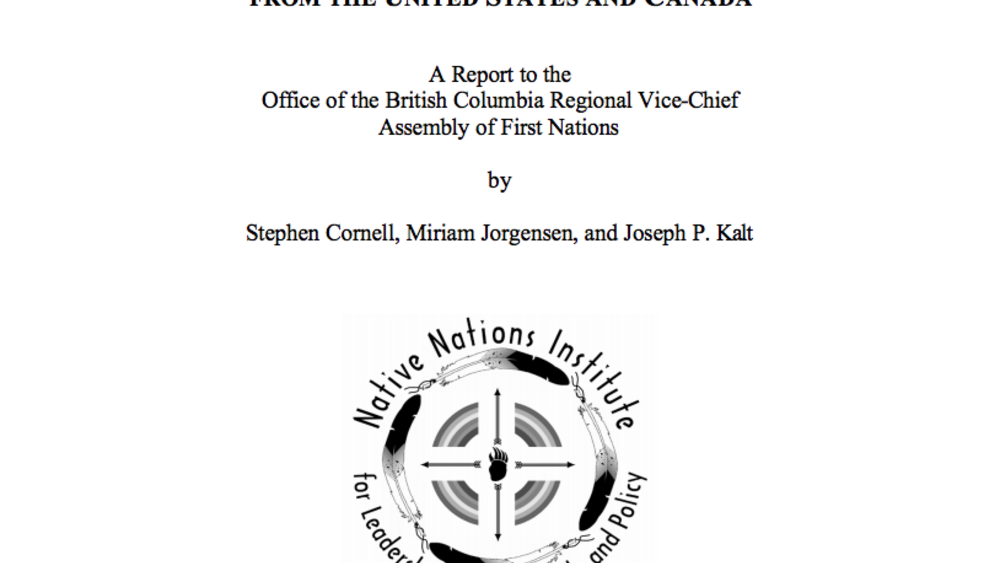
The First Nations Governance Act: Implications of Research Findings from the United States and Canada
In the spring of 2002, the Office of the British Columbia Regional Vice-Chief of the Assembly of First Nations (AFN) asked the Native Nations Institute for Leadership, Management, and Policy at The University of Arizona to provide that office with an analysis of the First Nations…
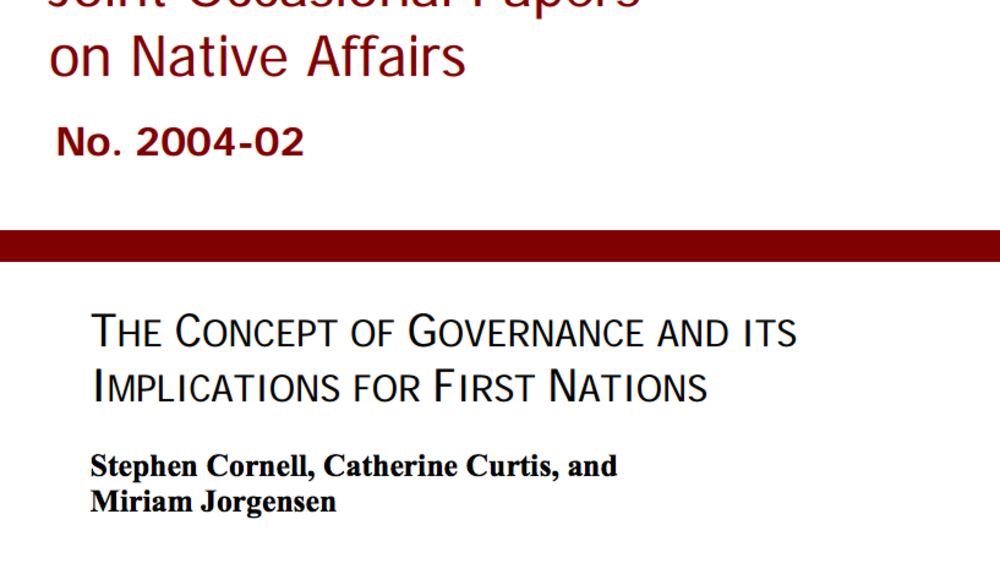
The Concept of Governance and its Implications for First Nations
What is governance? What is government? What does each do? And what distinguishes good governance - or good government - from bad? Why is the quality of governance important to the success of human societies? And what is the significance and meaning of self-governance? And What does effective self-…
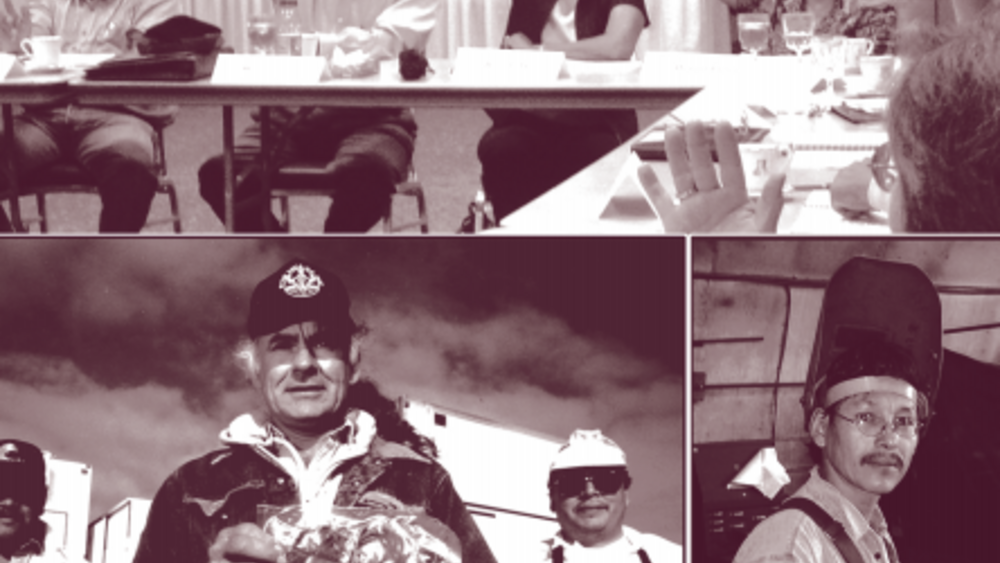
What Makes First Nations Enterprises Successful? Lessons from the Harvard Project
Some enterprises owned and operated by Native nations do well, and others don't. Of course this is true of all businesses--some succeed and others fail--and there are numerous reasons why. After all, building a successful business is a complex and challenging task. But in these and many other cases…
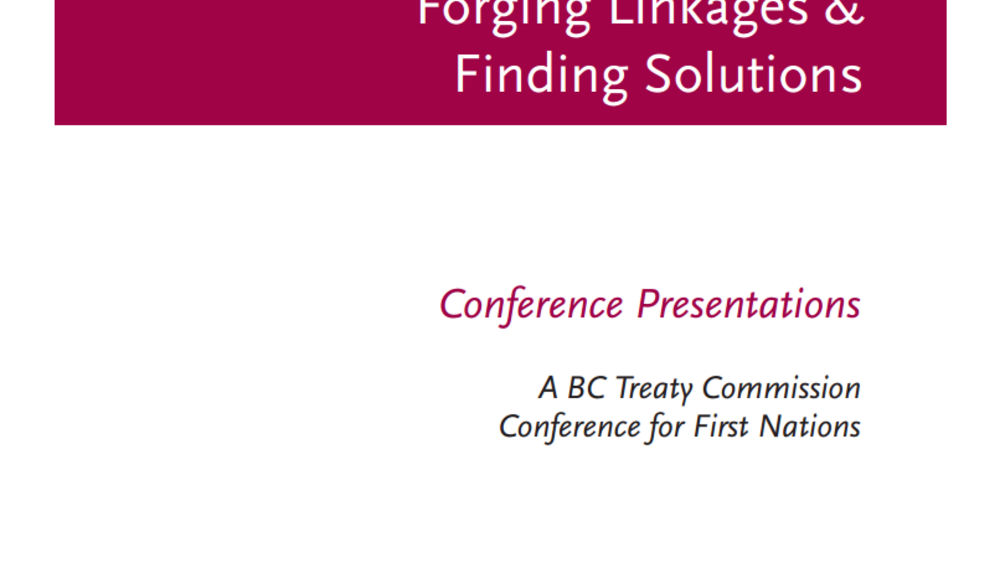
Rights, Governance, and the BC Treaty Process
The keynote address given at the BC Treaty Commission Conference for First Nations that discusses the rights, governance and the BC treaty process. Cornell emphasizes the fact that treating making can be more than a process. It can lead to the phenomenal concept of nation building that is sweeping…

Indigenous Peoples, Poverty and Self-Determination in Australia, New Zealand, Canada and the United States
Australia, New Zealand, Canada and the United States are among the world’s wealthiest nations. It is an often noted irony–and an occasional source of embarrassment to the governments of these countries–that the Indigenous peoples within their borders are in each case among their poorest citizens.
Honoring Nations: Jon Waterhouse and Rob Rosenfeld: The Yukon River Inter-Tribal Watershed Council
Jon Waterhouse and Rob Rosenfeld provide an overview of the work accomplished by the Yukon River Inter-Tribal Watershed Council, demonstrating the benefits of Native nations who have common cultures and challenges to band together to solve issues of mutual concern.
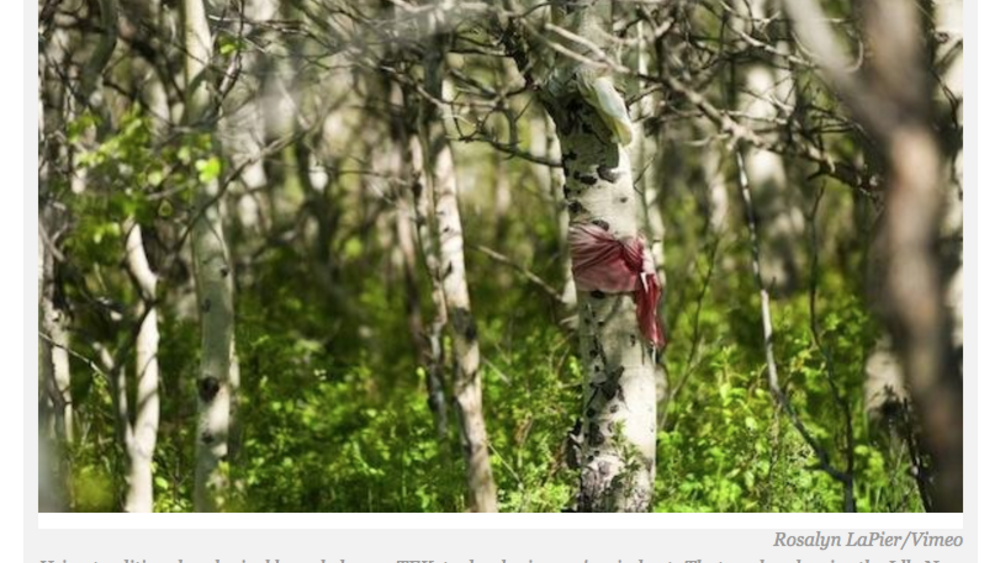
Idle No More: Decolonizing Water, Food and Natural Resources With TEK
Watersheds and Indigenous Peoples know no borders. Canada’s watershed management affects America’s watersheds, and vice versa. As Canada Prime Minister Stephen Harper launches significant First Nations termination contrivance he negotiates legitimizing Canada’s settler colonialism under the guise…
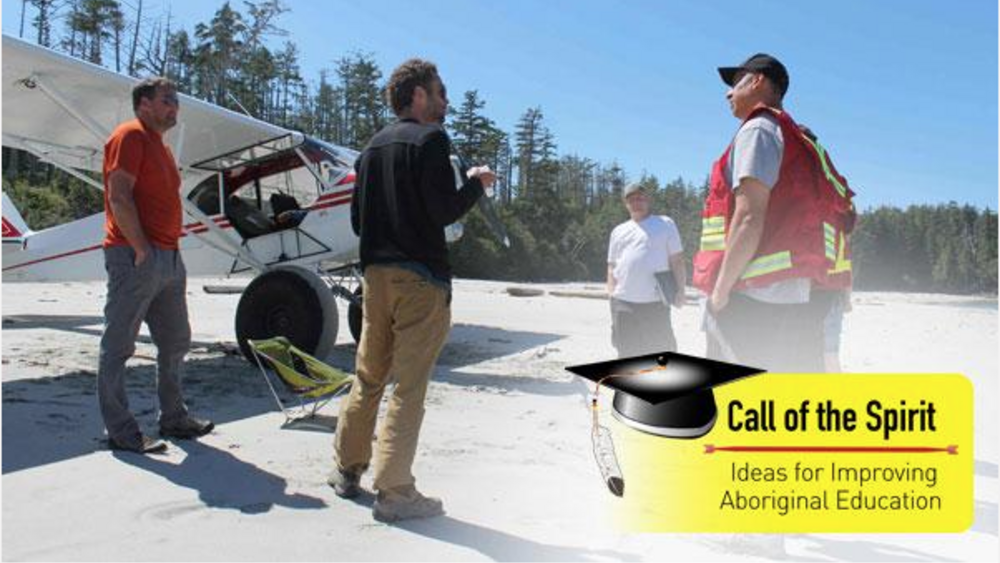
How First Nations Guardians Defend British Columbia's Fragile Coast
B.C.'s Central Coast houses the Great Bear Rainforest, the largest intact temperate rainforest left in the world. Attracting environmentalists, tourists, big game hunters, and natural resource developers from all over the globe, this fragile and much-coveted ecosystem has been home to First Nations…
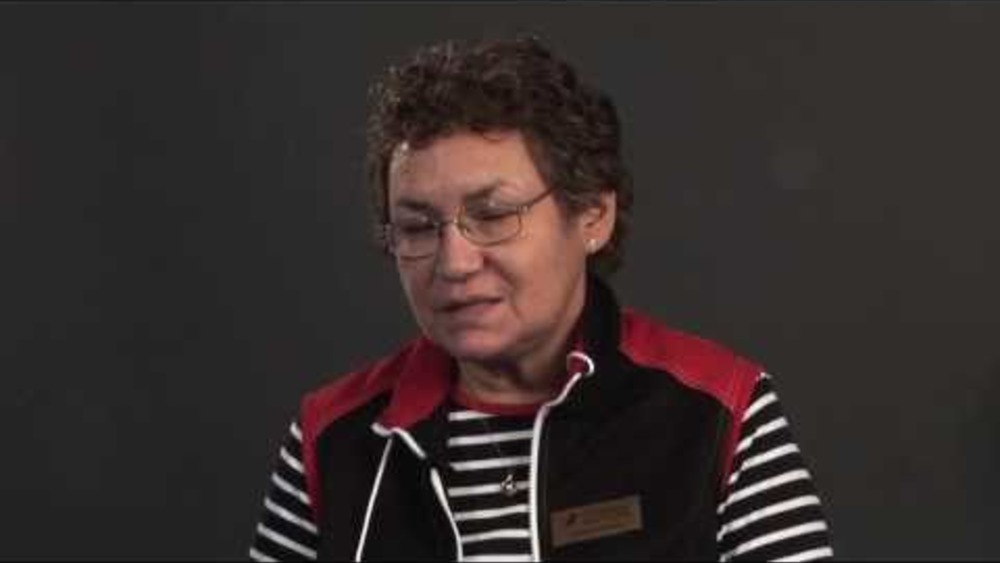
NCFNG: Governance and Cultural Match
Taken from a 2008 event hosted by the National Centre for First Nations Governance, this video looks at the question: "How does a First Nation match governance with their culture and traditions?"
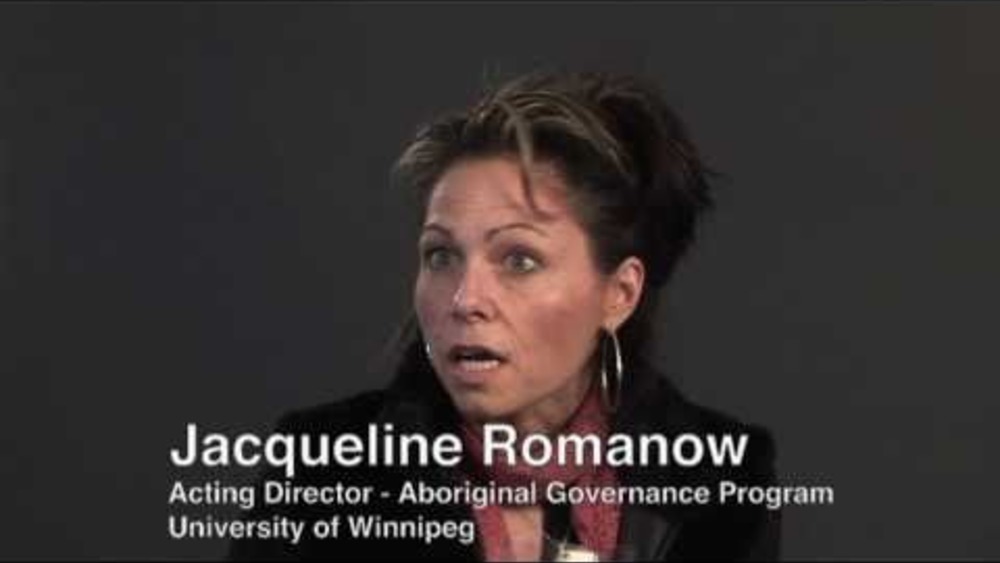
NCFNG: Implementing Independent Governance
This video, taken from a 2008 conference hosted by the National Centre for First Nations Governance, provides some perspective on the question: "How does a First Nation implement their right to self-governance?"
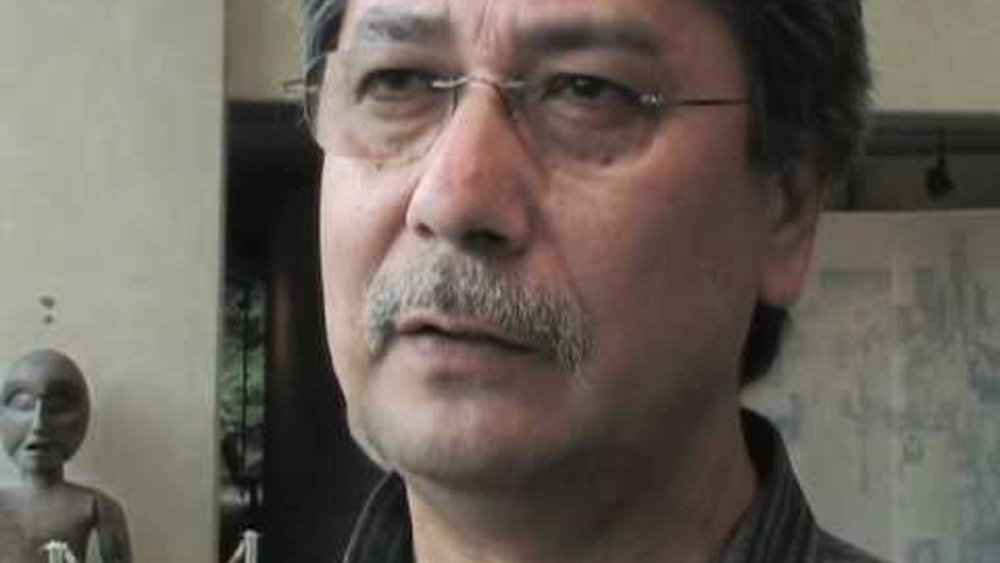
NCFNG: Youth and First Nation Governance
Satsan (Herb George), President of the National Centre for First Nation Governance, talks about the importance of involving youth in Nation Rebuilding.
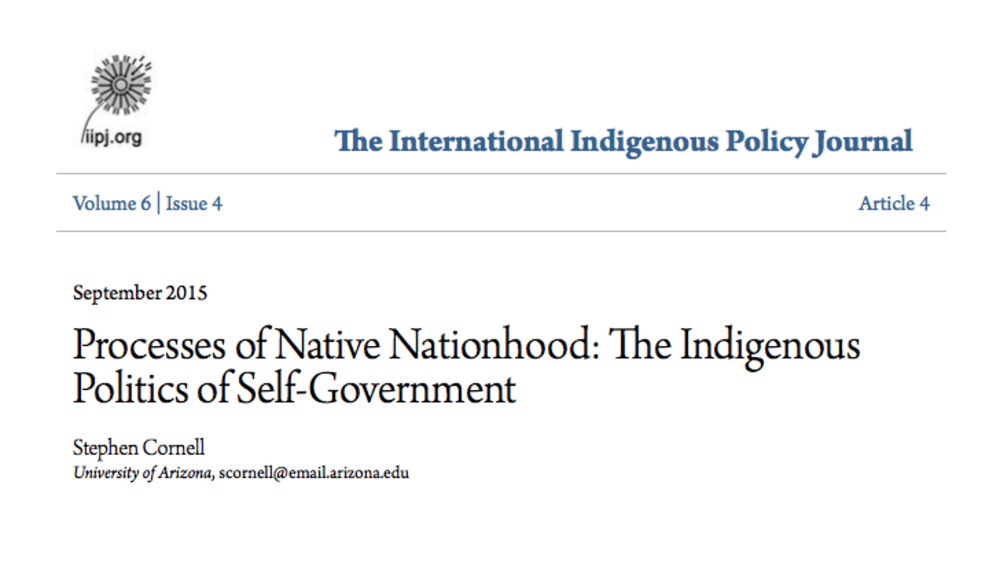
Processes of Native Nationhood: The Indigenous Politics of Self-Government
Over the last three decades, Indigenous peoples in the CANZUS countries (Canada, Australia, New Zealand, and the United States) have been reclaiming self-government as an Indigenous right and practice. In the process, they have been asserting various forms of Indigenous nationhood. This article…
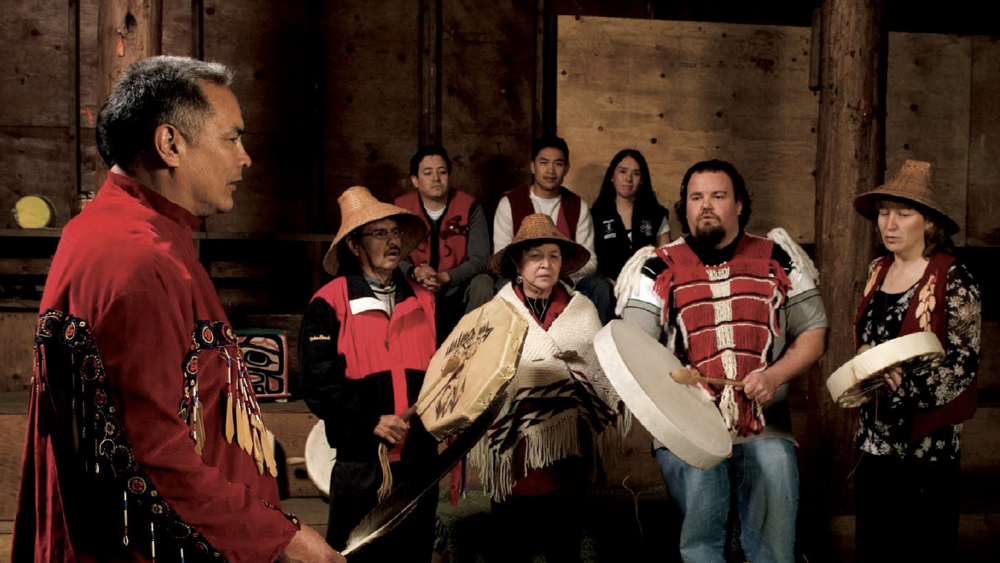
First Nations Communications Toolkit
The First Nations Communications Toolkit is a unique resource jointly developed by Indian and Northern Affairs Canada, BC Region, and Tewanee Consulting Group. This Toolkit was designed explicitly for First Nations communicators and is based on input from First Nations communicators and…
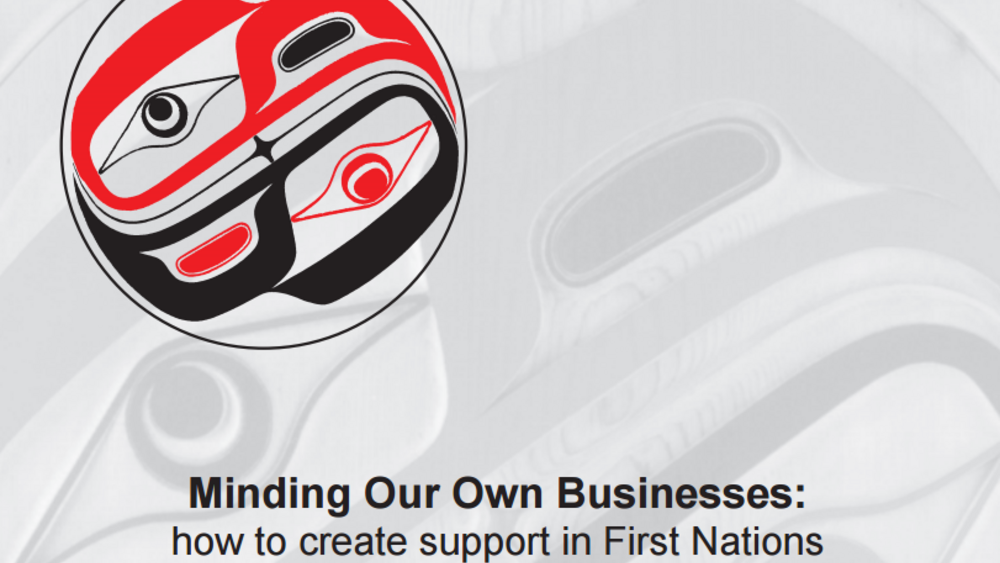
Minding Our Own Businesses: how to create support in First Nations communities for Aboriginal Business
The purpose of the project was to investigate what other First Nations have done to support their small business operators, and to create a process to look at what could be done in your community...
